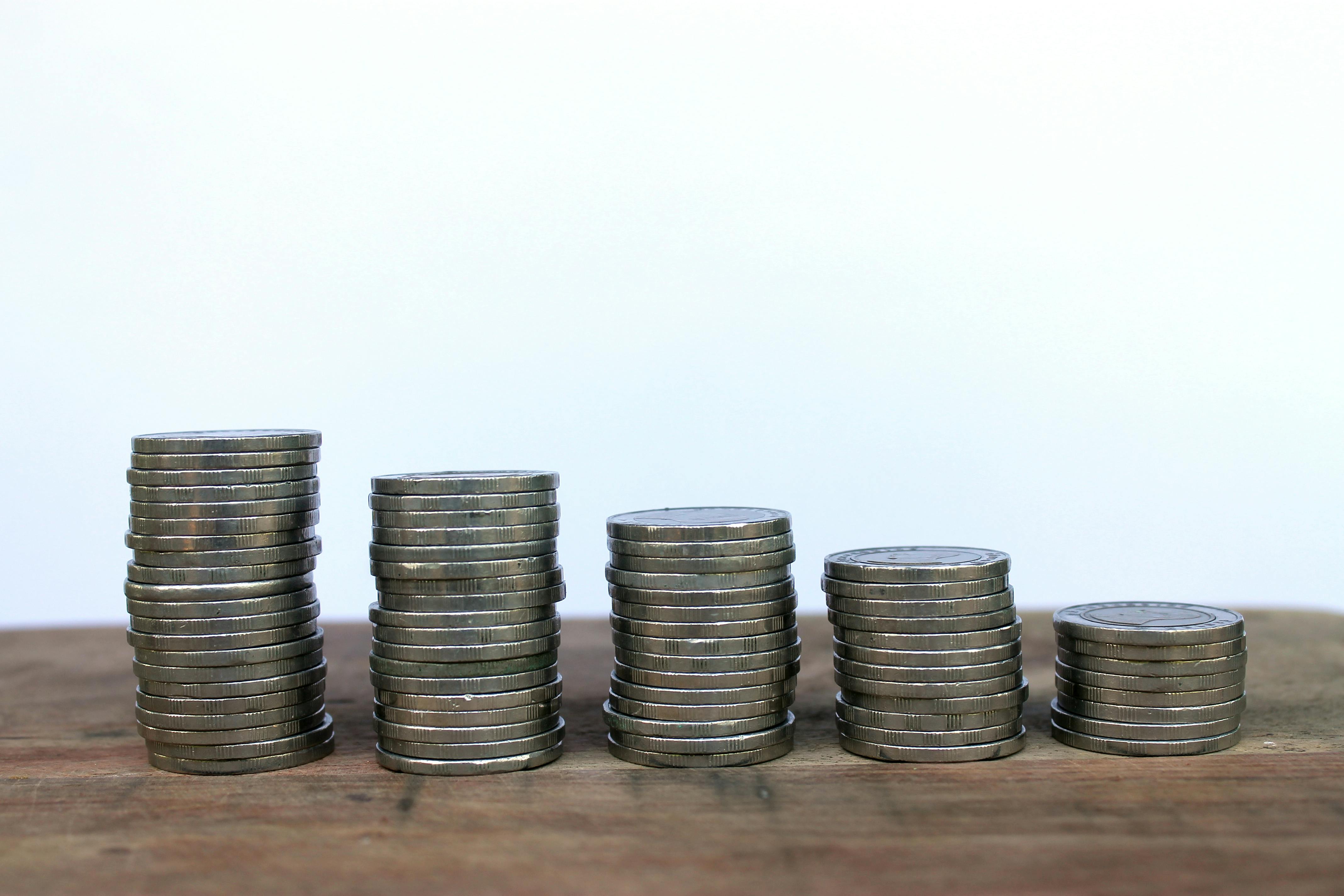When you ask anyone about financial freedom, the first phrase that pops into mind is 'passive income'. It is a good way to 'grow' your money, and not get outpaced by inflation rates.
I have taken the liberty of ranking these suggestions from safest to the most risky, in my opinion, if you have any strong objections, feel free to leave them in the comments!
Passive income is basically a secondary paycheck that you receive (passively) on top of your day job.
Most of these methods require you to have at least some money, however side hustling can be done for free, and can be extremely lucrative if done well!
With that said, here are some ways you can start building your streams of passive income.

Pension funds are known to be extremely safe, especially those managed by a country's government.



I have taken the liberty of ranking these suggestions from safest to the most risky, in my opinion, if you have any strong objections, feel free to leave them in the comments!
Passive income is basically a secondary paycheck that you receive (passively) on top of your day job.
Most of these methods require you to have at least some money, however side hustling can be done for free, and can be extremely lucrative if done well!
With that said, here are some ways you can start building your streams of passive income.
Side Hustle
I decided to rank side hustling as the safest as the only things you'll need to commit are time and effort. On top of that, it is significantly more difficult to build a passive income stream with this method as compared to the others.
However, if you do successfully build up this stream, you stand to earn much, much more, without any upfront payment(most of the time).

Some side hustles which you can build to eventually earn passive income are
- Blogs
- Youtube Channels
- Agencies
- E-commerce stores(may require some initial investment)
- Posting covers/songs on spotify
- Writing E-Books
Pension Funds
A pension fund is a fund which allows you to deposit money, but not to withdraw it, until you have reached your retirement age. I know, that sounds dumb, but it's not as bad as it seems.
A pension fund, according to google, is a plan, fund, or scheme which provides income for retirees. A pension fund grows as you and your employer contributes to it.
In my country, we have what's called the Central Provident Fund(CPF), which is compulsory for every citizen and permanent residents(PRs).

Every month, a percentage of our salary is pooled together with contributions by our employer, and added into this fund, which can earn an interest of 2.5% to 5% a year.
Other countries have different funds which can be opened by individuals. For example, the United States has the ROTH IRA and 401k which works similarly to my country's CPF, however, it is not compulsory to contribute to them.

Every month, a percentage of our salary is pooled together with contributions by our employer, and added into this fund, which can earn an interest of 2.5% to 5% a year.
Other countries have different funds which can be opened by individuals. For example, the United States has the ROTH IRA and 401k which works similarly to my country's CPF, however, it is not compulsory to contribute to them.
Pension funds are known to be extremely safe, especially those managed by a country's government.
Fixed Deposits
A fixed deposit is something quite similar to a pension fund, you still have to wait, but you don't have to wait till retirement to withdraw your money.
Fixed deposits have a maturity date - a date at which you will be able to withdraw the money. Depending on the bank or financial company that you decide to register your account with, this can range from months or decades.

Put simply, a fixed deposit is a bank account which you can put money into, but can't take money out of.
Then begs the question, why would anyone want to use a fixed deposit account instead of a regular bank account? For one simple reason, fixed deposits provide more annual interest than banks - around 2-3% per annum.
Fixed deposits have a maturity date - a date at which you will be able to withdraw the money. Depending on the bank or financial company that you decide to register your account with, this can range from months or decades.

Put simply, a fixed deposit is a bank account which you can put money into, but can't take money out of.
Then begs the question, why would anyone want to use a fixed deposit account instead of a regular bank account? For one simple reason, fixed deposits provide more annual interest than banks - around 2-3% per annum.
Fixed deposits are relatively safe, and hence do not have the best returns. Nonetheless, it's a pretty decent way to earn passive income, especially when compared to a bank account.
You can start a fixed deposit account by speaking to banks or financial institutions in your local area.
You can start a fixed deposit account by speaking to banks or financial institutions in your local area.
Bonds
The term 'bond' always finds itself floating around in talks about finance and investment. But what exactly is a bond?
Bonds are financial instruments which allows regular people like you and me to loan our money to big companies and governments.
Bonds usually last for several years before maturing, after which the company or government body will return the principal(the initial investment) to you.
Bonds have ratings that range from D being the worst, to AAA being the best (yes they have 'AA' and 'A' as well).
These ratings are provided by credit rating industries who analyze the company's or government's ability to repay the bond.
Bonds are known for being much safer than stocks, hence, the change in their prices are generally the opposite of regular stocks on the stock market. The initial amount invested is also quite stable and will not vary much. So you'll not have to worry about losing that.
The only way you'll lose out is if the company or government is unable to repay your bond, which is quite unlikely if it has a good credit rating.
The interest you can earn from bonds ranges from 1% to 7% depending on the amount of risk you take on, the length of the bond and the amount.
You can buy bonds through a public offer by the company or the government, or through stock brokerages like Interactive Brokers or Robinhood. In fact, there are even Exchange Traded Funds(ETFs) for bonds.
P2P lending
'P2P' lending, or peer-to-peer lending is an extremely interesting way to use your money to work for you.
Just like bonds, you loan your money to a third-party. Except, instead of loaning your money to companies and governments, you are loaning money to regular people.

Disclaimer: It is CRUCIAL that the platform you use for P2P lending is a reputable one, as using a fishy one WILL lead to you losing all your money.
I have ranked this as a more risky investment than bonds as the risk of default(the party being unable to repay the loan) is higher.
Companies and governments have reputations to uphold, and hence the risk of them being unable to repay the loan is low. But with this comes a lower interest rate.
Since loaning to individuals is riskier, you do get a higher interest rate. In fact, it is possible to get up to 10% interest per year if you invest in P2P lending.
Some of the more reputable P2P lending platforms include peerform and LendingClub.
Dividends
The term that has become synonymous with passive income, dividends are the first thing that pops up into many investor's minds when asked about passive income.
In fact, there is a whole concept of stock market investment centered around dividends - income investment.
Income investment focuses on buying stocks which pay dividends, to generate ..well...income.
But what exactly are dividends?
A dividend is a small sum of money paid out by a company to its investors. It serves as a sort of 'thank you'.
These companies may pay their dividends once a month, once a year, once every quarter or twice a year.
I ranked this as the second most risky method as stocks on the stock market have a chance of dropping in price.
Companies pay dividends that range from 0.5% to 10% a year. Some even pay more than that.
The companies that tend to have the highest and most consistent dividends are Real Estate Investment Trusts (REITs) which I will get to in the next point.
Real Estate
Real estate. The trade notorious for making millionaires. There are many ways to get started with real estate, but a lot of them do require you to commit large sums of money. Of course there are cheaper or even free ways without any upfront payment like Rent2Rent or squatting(this is a joke).
So how does one make money with real estate?
When buying a house, investors usually take up loans and service them over time. This loan is usually called a mortgage.

They then source for tenants who may be interested in renting the property. They will charge said tenant rent which in most scenarios would be sufficient to pay for the monthly interest on their mortgage, and get the house for free, as long as they are able to find tenants.
Once the house is fully paid off, they can continue renting out the house to earn truly passive income each month.
However, real estate is incredibly risky as it is not easy to find tenants. On top of this, investors have to keep tenants happy, in order to prolong their stay.
Without tenants, the down payment(initial payment) followed by monthly interest for the mortgage will have to paid by the investor. Hence, it is crucial that you have a stable income before you venture into real estate.
Thanks for reading! I apologize for the sudden hiatus, I just got distracted and there's really no excuse for that. I will continue posting consistent content in the days to come!




